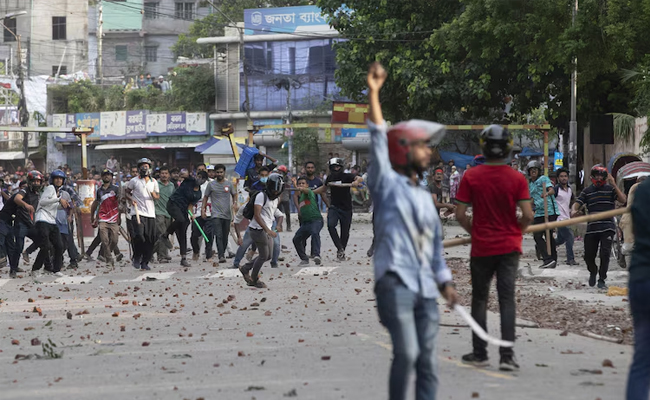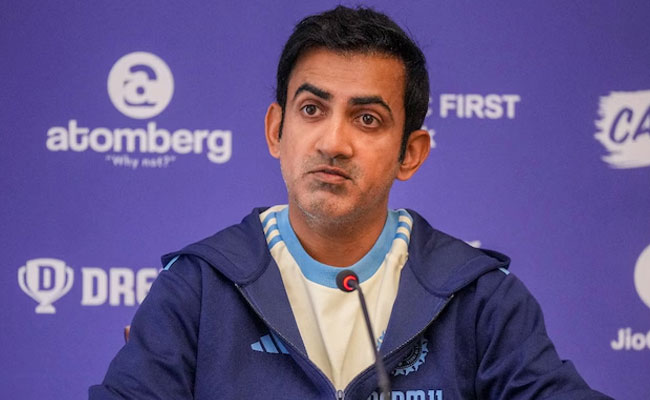Dhaka: Violence in Bangladesh has resulted in over 130 deaths as students call for reforms to the quota system for government jobs. The protests intensified after Prime Minister Sheikh Hasina referred to the protestors as "Razakars," a term historically associated with the pro-Pakistani force that opposed Bangladesh's independence during the 1971 War of Independence.
The protests reached a critical point this week when student activists from Dhaka University, the country's largest university, clashed violently with police and Awami League supporters.
The controversial quota system reserves up to 30% of government jobs for the descendants of veterans from the 1971 war. Protesters argue that this system is discriminatory and disproportionately benefits supporters of Prime Minister Hasina's Awami League. They demand a shift to a merit-based system. Hasina's comments at a public event further fueled the protests.
"If not the grandchildren of the freedom fighters, then who will get quota benefits? The grandchildren of the 'Razakars'?" Hasina asked. "This is my question. I want to ask the people of the nation. If the protesters don't comply, I can do nothing. They can continue their protest. If protesters damage properties or attack cops, the law will take its course. We can't help."
The "Razakars" were a paramilitary force recruited by the Pakistani army during the 1971 Bangladesh Liberation War, consisting mainly of pro-Pakistani Bengalis and Urdu-speaking Biharis. They were implicated in atrocities, including mass killings, rapes, and torture. Civilian deaths during the war are estimated between 300,000 and 3 million, leaving deep scars in the national consciousness.
In 2010, Hasina's government established the International Crimes Tribunal to prosecute those accused of war crimes during 1971. This was part of her electoral promises to address historical injustices. The tribunal has convicted several individuals, mostly from the now-banned Jamaat-e-Islami party.
In December 2019, the government published a list of 10,789 identified "Razakars," marking the first official recognition of these collaborators. This list included prominent figures and aimed to ensure historical accountability.
The protests are rooted in the quota system for government jobs, which reserves significant portions for descendants of freedom fighters. Established in 1972 and briefly abolished in 2018 before being reinstated, this system has been contentious. Critics argue it disproportionately benefits Awami League supporters, limiting opportunities for other qualified candidates.
"They are protesting against the repressive nature of the state," said Mubashar Hasan, a Bangladesh expert at the University of Oslo, to AFP. "Protesters are questioning Hasina's leadership, accusing her of clinging to power by force. The students are calling her a dictator."
Student protests against the quota system have a history in Bangladesh. The current wave began after the system's reinstatement, followed by the Supreme Court's suspension of the order pending a government appeal, leaving students frustrated. Their demands for a merit-based system feel ignored.
The grievances extend beyond the quota system, including high youth unemployment and a stagnant economy. Public sector jobs are highly sought after in a country with limited economic opportunities.
Let the Truth be known. If you read VB and like VB, please be a VB Supporter and Help us deliver the Truth to one and all.
Kumbakonam (Tamil Nadu) (PTI): A Class 12 student of a government school near here has succumbed to his injuries early Sunday morning after he was allegedly attacked by a group of Class 11 students, police said.
Fourteen class 11 students of Government Arignar Anna Model Higher Secondary School in Patteeswaram allegedly attacked their senior student on December 4, following a clash between their respective classes, they added.
The accused students hit the boy on the head with a wooden stick, leaving him seriously injured, police said.
The boy’s parents rushed to the school on being informed and admitted him to the Government Hospital in Kumbakonam. He was later shifted to a private hospital in Thanjavur for further treatment, police said. He had to be operated on to remove the blood clot in his brain.
On Sunday, around 2.30 am, he succumbed to his injuries, police confirmed. The 14 accused have been arrested and lodged in a juvenile home.
Patteeswaram Police said they had initially registered an attempt to murder case. "After post-mortem, we’ll alter it into a murder case," an official said.





